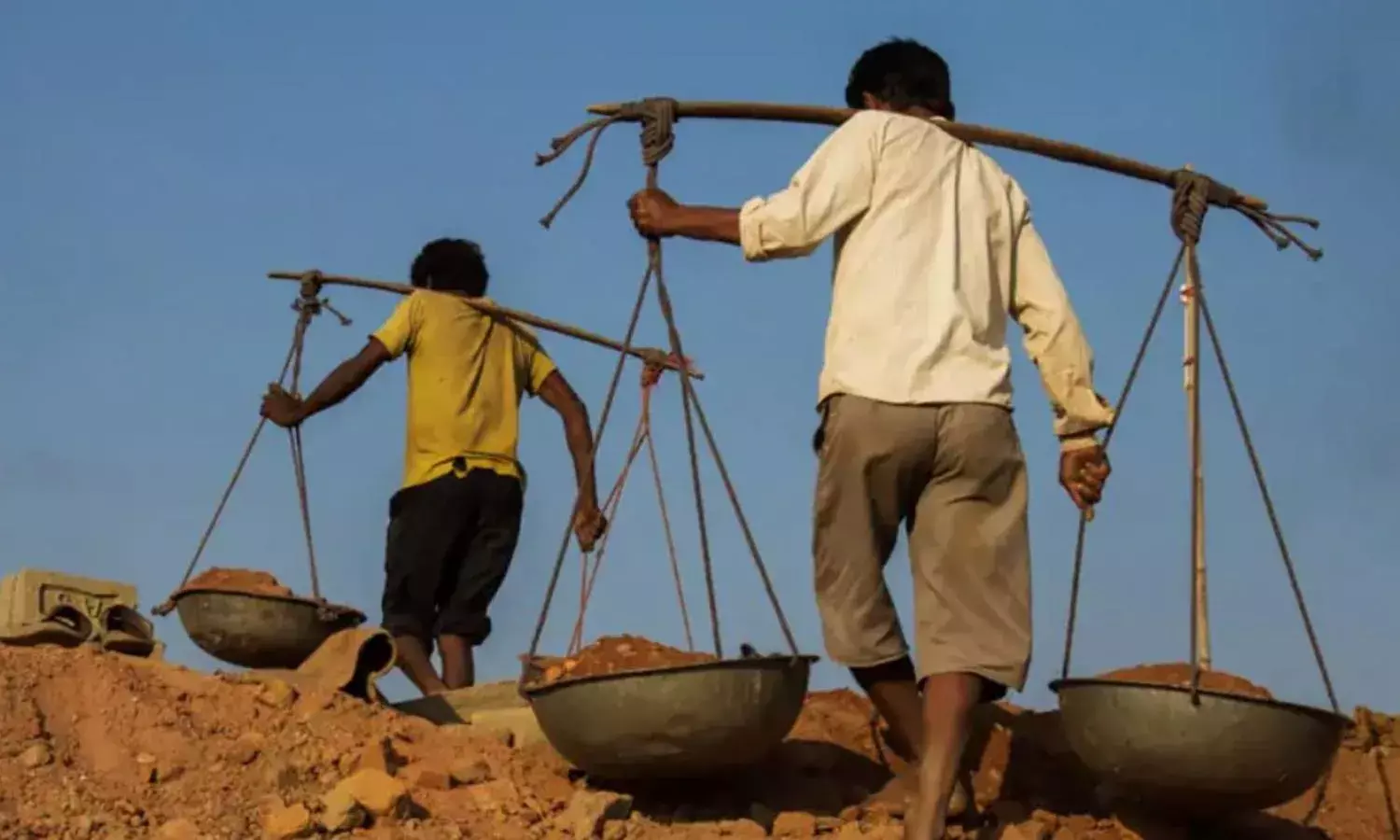'Their Eyes are Sprinkled with Chilli Powder so they Won't Sleep': Child Labourers Trapped in COVID
No way out of the woods

The most vulnerable part of any society are children and so it is with a tragedy like COVID.
India recorded some 10 lakh child labourers in the last Census, who are currently being tossed around from one place to another.
With most dhabas, factories and other establishments shuttered for over three months, their employers are finding it hard to feed them.
Hence the strange scenario of hundreds of child labourers being put on Shramik trains and buses and sent back to their parents, by the same traffickers who had taken them away promising a bright future.
Initially, there were complaints of beatings and abuse when the curfew was imposed.
Childline India reported receiving over 92,000 calls in the first 11 days of the closure.
Soon enough the burden of feeding these mouths became too much, and employers started putting them on the roads to fend for themselves.
Indu Rani Singh, director with the NGO Prayas in Rajasthan, says “journalists writing stories from Delhi don't realise the reality. It’s not the traffickers who are sending children back. He has got his cut for supplying the children.”
Singh explains that since the traffickers had already got their commissions from the shops and factories to whom they supplied child labourers, they were not concerned about sending them back safely.
“For instance in Jaipur, we know how children working in lac shops, bangle factories and other industries were put on the road once the business was closed. Civil society organisations did their best and tried to feed as many children as we could.
“After this it was the elderly migrants who arranged for the buses and tickets in Shramik trains to send the children to their homes in Patna, Gaya, Nalanda, Nawada, East and West Champaran, Sitamarhi, Madhubs I, Samastipur, Madhupura, Supaul and other stations [in Bihar],” says Singh.
One in ten child labourers in the country work in Rajasthan, and it is extremely difficult to get them compensation. “Court cases take years.The government is never interested in the cases but even after we managed to get convictions in six cases in three years they have not been given compensation so far.”
In areas like Dausa and Bharatpur, activists from Childline and the National Commission for Protection of Child Rights, along with the police, have also swung into action to rescue these child labourers.
But Suresh Kumar, executive director of the Bihar-based NGO Centre Direct also remarks that the rescued children seldom receive any compensation as: “the state labour department works in a non-transparent manner and is more in league with the employers.”
Compensation varies from situation to situation. There are laws and laws but they are stuck between files.
Some news reports argue that these children are not entitled to compensation under the Bonded Labour Act, but Indu Singh disputes this.
“Tell these journalists to talk to me. Let them study the definition of bonded labour. These children are employed with the promise that they would be working only for limited hours and they would have a few hours for themselves. They would also get educated by the employer.
“But the reality is that they are made to work for up to 10–12 hours. In extreme cases their eyes are sprinkled with chilli powder mixed water so that they don’t sleep. That is the feedback we get, because we are working on the ground for years, and we get them rescued with the help of the police,” Singh tells The Citizen.
No trafficker is ever found travelling with these children. NGOs say this is simply because traffickers are not interested in sending them back to their parents. It is only NGOs who arrange to send them back to their parents’ address.
In Rajasthan, Prayas recently sent 118 children back home after getting them rescued.
Unfortunately this reprieve from child labour is very temporary for these children who work with fake Aadhaar cards showing them of age.
With the lockout being lifted in most parts of the country the traffickers will again knock at the parents’ doors, promising them the moon.
But this time they are in for a very bad deal, because most state governments have relaxed labour laws in favour of the employer, with the avowed aim of resuming economic activity at any cost.
The trafficker’s job is made easier by the looming poverty of the hinterland in Bihar, Uttar Pradesh, Odisha etc. where parents have become the biggest factor in pushing children into labour.
The degree-bearing lot argue that child labour is not such a big deal because these children are earning members of their family, helping relieve the burden on their parents.
The air-conditioned argument for pushing children into labour goes like this: “What do you do with these children. They won’t study even if they are put in schools. And dropouts normally turn into vagabonds and criminals. It’s better if they help their parents and start earning.”
An argument even our governments seem to endorse, unofficially of course.
These well wishers don’t realise the grim unsafe conditions in which employers make these children work, for unearthly hours, with no personal time and no recreation, deprived of education, with sexual abuse perpetrated on the majority of them.
This is why in most cases even when child workers are rescued and sent back home, their own parents traffic them again.
With the state failing to enforce punishment for employers, traffickers or parents, for these children there seems no way out of the woods.



